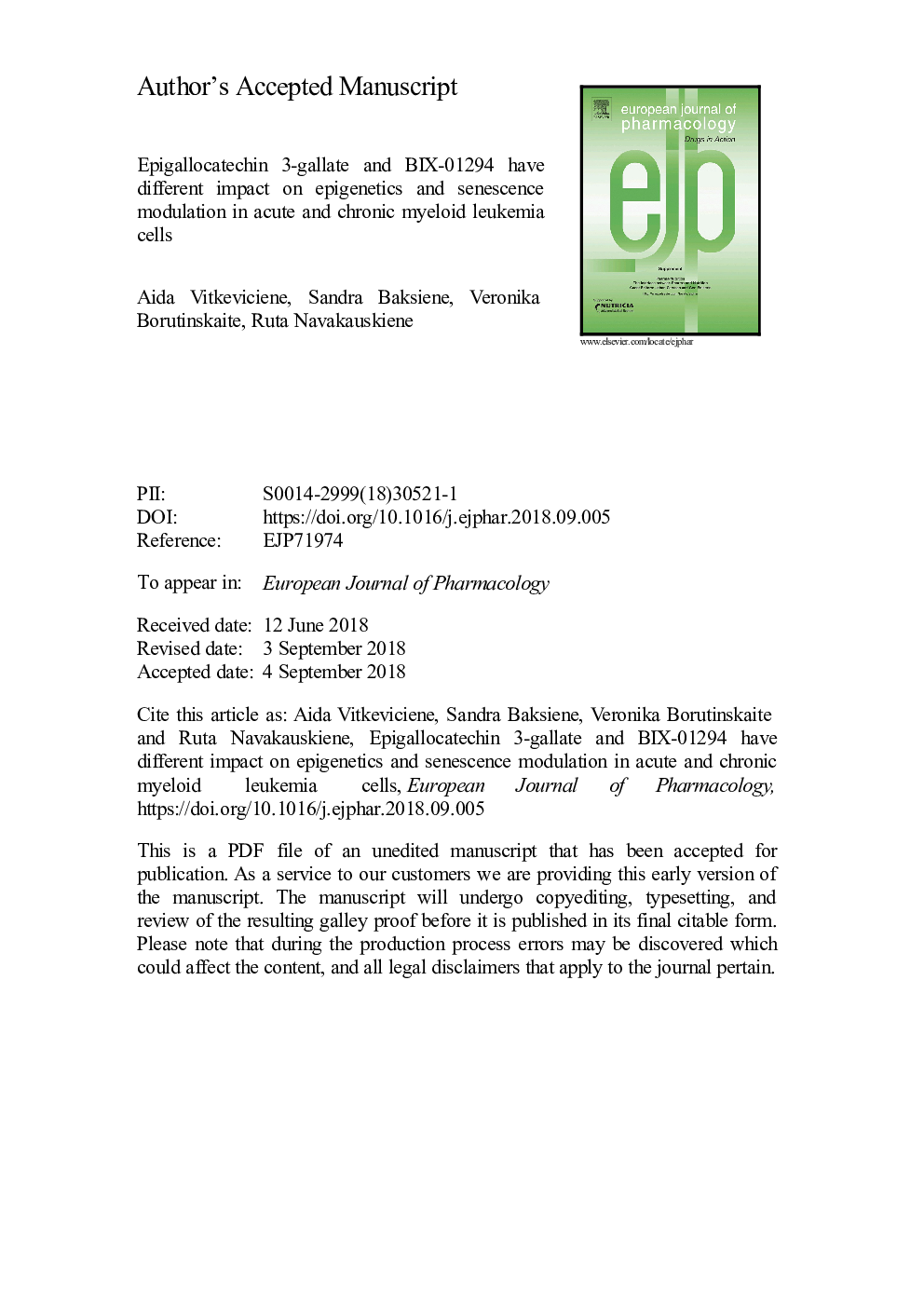| Article ID | Journal | Published Year | Pages | File Type |
|---|---|---|---|---|
| 10158425 | European Journal of Pharmacology | 2018 | 26 Pages |
Abstract
Myeloid leukemia treatment is quite successful nowadays; nevertheless the development of new therapies is still necessary. In the present study, we investigated the potential of epigenetic modulators EGCG (epigallocatechin-3-gallate) and BIX-01294 (N-(1-benzylpiperidin-4-yl)-6,7-dimethoxy-2-(4-methyl-1,4-diazepan-1-yl)quinazolin-4-amine) to alter epigenetic state and cause cellular senescence in acute and chronic myeloid leukemia NB4 and K562 cells. We have shown that after leukemia cell treatment with EGCG and BIX-01294 the proliferation and survival were inhibited of both cell lines; however, only NB4 cells underwent apoptosis. Both epigenetic modulators caused cell cycle arrest in G0/G1 phase as assessed by RT-qPCR (p53, p21, Rb) and flow cytometry analysis. Increased levels of ATM, HMGA2, phosphorylated ATM, and SA-β-galactosidase staining indicated that EGCG caused cellular senescence, whereas BIX-01294 did not. Immunoblot analysis of epigenetic players DNMT1, HP1α, H3K9me3, EZH2, and SUZ12 demonstrated beneficial epigenetic modulation by both agents with exception of mainly no epigenetic changes caused in K562 cells by EGCG. Therefore, we suggest EGCG as a promising epigenetic modulator for acute promyelocytic leukemia therapy and as a potential cellular senescence inducer in both acute and chronic myeloid leukemia treatment, whereas BIX-01294 could be beneficial as an epigenetic modifier for both myeloid leukemias treatment.
Related Topics
Life Sciences
Neuroscience
Cellular and Molecular Neuroscience
Authors
Aida Vitkeviciene, Sandra Baksiene, Veronika Borutinskaite, Ruta Navakauskiene,
